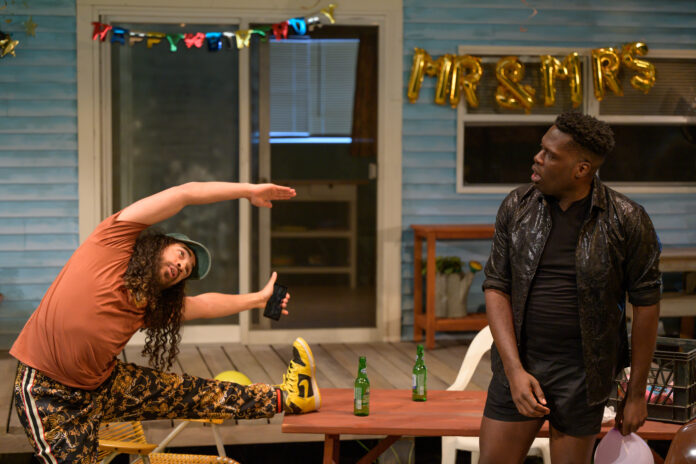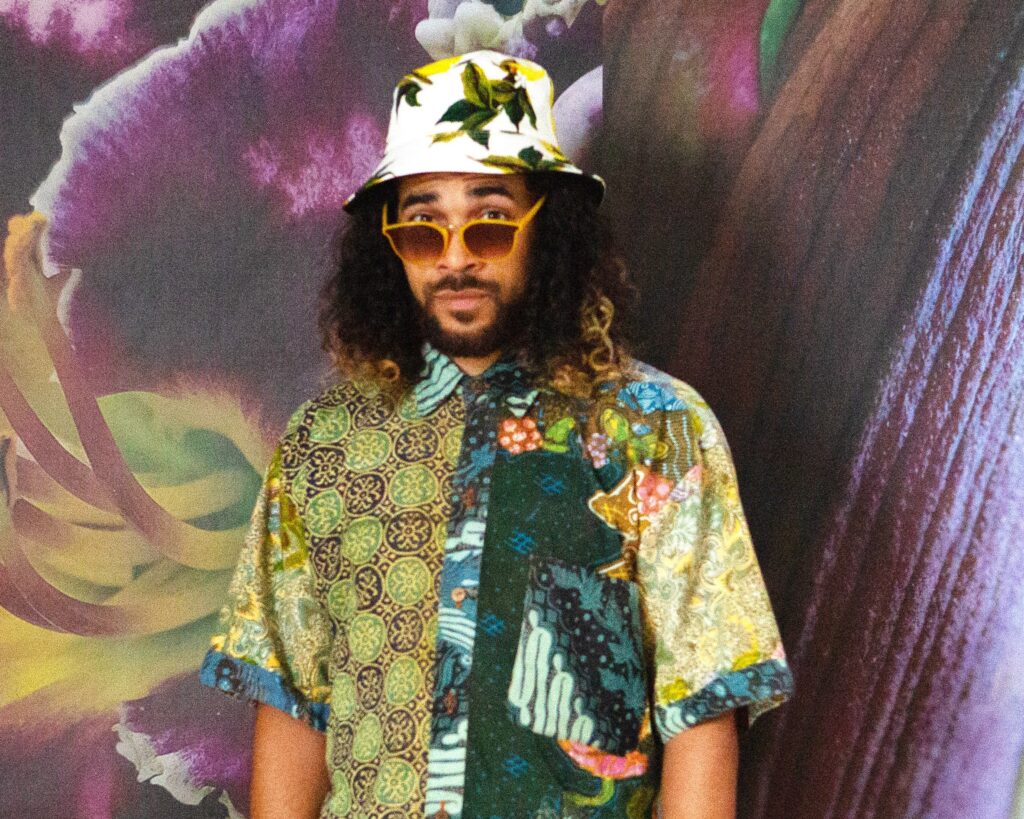
Theater is an ephemeral art form by nature, so actors rarely get the chance to return to a role after the final curtain. But Anthony Martinez-Briggs, a Philly-based nonbinary actor, finds themself in a unique position. A member of the Wilma Theater’s HotHouse acting company, Martinez-Briggs originated the role of Tio in the streaming premiere of James Ijames’s “Fat Ham,” which was released as a digital production in 2021. The play went on to win the 2022 Pulitzer Prize for Drama and have a Tony-nominated Broadway run earlier this year. The Wilma is now helming the Philadelphia stage premiere of the play through Dec. 23, and Martinez-Briggs is one of three actors from the streamed production to return for this engagement. PGN caught up with Martinez-Briggs about the unique experience. These are edited excerpts from the conversation.
Could you talk a bit about the experience of shooting “Fat Ham” back in 2021, at the height of the pandemic?
It was a testament to the Wilma Theater’s commitment, and all of our commitments as artists, to telling this story, the feeling that it was absolutely necessary. That is why we decided, in the midst of the COVID moment, to not just go into a bubble but to go on-site to Schuyler, Va., and very explicitly be a part of bringing this story to life. One of the things that was distinct about it was that it was a bunch of Black people going down to Virginia, where they’re not from — and what was not lost on us was how close Schuyler was to Charlottesville, and the violence that happened there in the midst of the Black Lives Matter movement. It was all on our minds, that we were taking a risk to come down here, to all be driving down here in one car, to do a show in a place we’re not familiar with. But it was so worth it—the care we all brought to one another, knowing the risks we were taking not just with COVID, but being away from our families for an extended period of time.

Now that you have a few performances under your belt in front of a live audience, how has it felt to revisit the material in that context?
[The filming] was a special moment, and I hold that near and dear to my heart, but the one thing missing was an audience. When we talk about having a “traditional” theater experience, we talk about a stage, the aspect of doing it multiple times throughout a run. But the biggest thing I missed was having an audience to respond to us. I have to shout out that we’ve been blessed to have some particularly effusive performances. We just had opening night, which is always a wonderful house. But on Tuesday, Nov. 28, the Wilma had its first-ever Black Affinity Night. That was an experience that I could not really describe to anyone else — you really had to be there. It felt like home. It felt like the audience didn’t need to catch up, they didn’t need an explanation, they didn’t need extra context. They laughed at things where we may never hear a laugh as uproarious or as collective again. It was a really beautiful experience. The audiences are eating this piece up. They’re licking their fingers, they are sucking the meat from the bone!
You’ve worked previously with playwright James Ijames. What draws you as a performer to his work?
Working with James is such a blessing and a delight. I’ve already seen a fan of James as a peer, working together in “An Octoroon” [at the Wilma in 2016], getting to see his work as an actor. Even before that, I was a fan. My first time working with James as a writer was “Kill Move Paradise,” also at the Wilma, and that experience reached to a very deep part of my soul. The fulfillment I felt, and also the exhaustion I felt, during that time I would often categorize it as ancestral. My blood is tired. My blood is spilled. My blood is being seen and acknowledged by these audiences and by James’s work. He is a master of his craft, and furthermore, he never rests on his laurels or expects that he won’t continue to grow. For that, I am eternally grateful to bring his work to life.
Earlier this fall, you won the F. Otto Haas Award, which is presented annually to an emerging Philadelphia theater artist. Many of the most prominent artists in the Philly theater world have won this award in the past, including James himself back in 2011. How did it feel to receive that honor?
That moment for me was a myriad of emotions. At first, I felt like, “Wow, I can’t believe this is happening.” And then I felt like — of course this is happening. This makes sense to me. It’s not only the work I have done, but the work that’s been instilled in me — by my ancestors, by my peers, by my teachers, by my students, by my collaborators. All of those things together made it very clear that was where I was supposed to be, and that moment was for me. I only can hope and aspire to make all of those people involved in my growth feel like that was their win as well.
Lastly, what does being a part of “Fat Ham” mean to you?
It cannot be overstated that I am so pleased that, with my particular performance and the role I’ve been given, I am able to shine a light on the intersectionality that is present not only in “Fat Ham,” but in Blackness. One thing I love most about this piece is that Blackness is not presented as monolithic. Being a biracial performer in this piece, being able to represent those who are not within the binary, and knowing this is a queer space that ultimately ends in a drag reveal is so absolutely what this moment needs. And it’s what we need to continue to push for with so much divisiveness in the world on so many issues. Intersectionality is what’s going to set us free.
“Fat Ham” continues through Dec. 23 at the Wilma Theater, 265 S. Broad St. For tickets and information, visit wilmatheater.org.